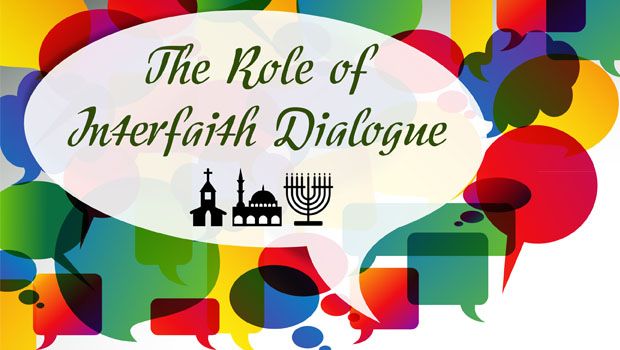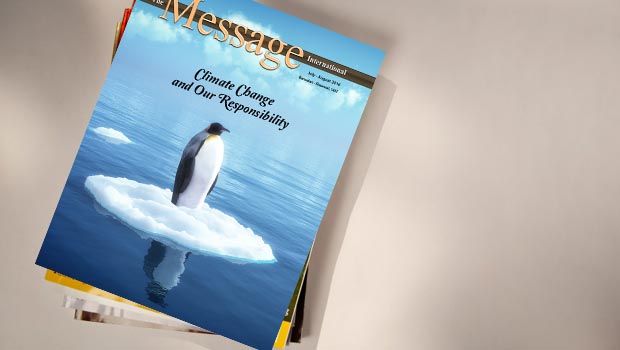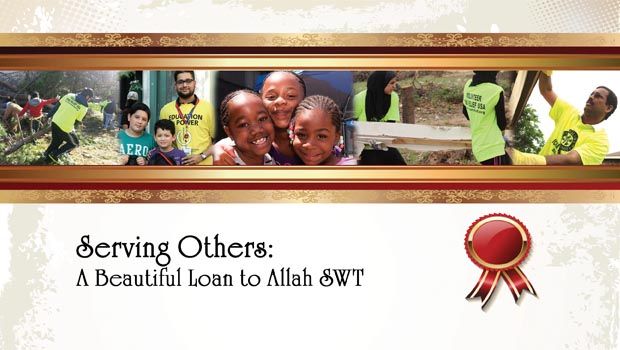Prophet Muhammad, 1447 years ago, announced his Islamic mission and since then opposition has been pursued by those whose beliefs and ways of life were/are challenged by the deen of Islam. Followers of previous faith traditions never accepted Muhammad as a prophet of God. During his lifetime he was called a liar, magician, poet, and lunatic. Now they call him a pedophile, a warmonger, and a terrorist. Islam, from its beginning however, flourished because of its purity of monotheistic belief and its uncompromising emphasis on a moral code for humanity including universal social justice and opposition to oppression. Over the years countless individuals have become Muslim and adopted Islamic values. Unfortunately too many so-called Muslims have abandoned Islamic teachings and joined in the ranks of oppressors, engaging in acts of injustice, terrorism, and disregard for the sanctity of human life. Professor Yvonne Haddad of Hartford Seminary asked students in her history class, “What is the first thing that comes to your mind when you hear the word Muslim?” All but one, a Muslim student, responded spontaneously “terrorism.”
The perception of Islam even before 9/11 was not favorable. In 1993, the LA times asked 1273 readers nationwide a number of questions about the religion and its adherents. Asked their impression of Islam, 14 percent indicated “favorable,” 22 percent “unfavorable,” and 64 percent indicated they didn’t know or have an opinion. In the same poll, 41 percent viewed Islam as an antidemocratic religion, and 29 percent thought that Islam poses a threat to the security of United Sates and its Western allies. The perception of Islam after 9/11 has become more negative. According to a 2013 PEW research study, the Islamic religion is considered by 42 percent of the respondents to encourage violence compared to 22 percent in 2002.
Does Islam Promote Violence and Terrorism?
Central to the issue of violence and terrorism is the concept of jihad. The word “jihad” literally means “struggle,” which in Islamic terms means to strive in the way of God. Any struggle done in day-to-day life to please God can be considered jihad. Despite the assertions by Muslim extremists, which is then parroted and highlighted by opponents of Islam, the natural state of affairs with non-Muslims is not one of war. As pointed out by Shaykh Yusuf Al-Qaradawi, every Muslim is a mujahid (one who engages in jihad) but not a muqatil (fighter). In a paper “What is New about Al-Qaradawi’s Fiqh of Jihad?” by Rashid Al-Ghannoushi, the author notes that Al-Qaradawi distinguishes between two types of jihad – military and civil, and that military jihad involves the defense of Muslims when they are attacked. As to civil jihad, he quotes from Al-Qaradawi’s book to show that civil jihad “encompasses the academic, scientific, cultural, social, economic, educational, health, medical, environmental and civilizational fields. The objective of this civil jihad is to exert oneself for Allah’s sake in order to educate the ignorant, employ the unemployed, train workers, feed the hungry, clothe the naked, house the homeless, treat the ill, achieve self-sufficiency for the needy, build schools for pupils, universities for students, mosques for worshippers, clubs for sports lovers to practice their hobbies.” Al-Ghannoushi also points out that Shaykh Al-Qaradawi asserts that Islam calls for interaction with the non-Muslim world, not isolation.
Interfaith Interaction, Not Isolation
I sincerely believe interfaith dialogue and activism is the need of the time. Interfaith involvement is not giving up one’s faith or compromising one’s beliefs but engaging in a process of self-education about others and finding opportunities for dawah through interaction and exchange of views. It is coming together on common ground as fellow human beings. It is a venue for sharing one’s faith with others.
An experience of great satisfaction for me has been interfaith dialogue with others. One of my dialogue partners, a Benedictine nun, Sister Mary Margaret Funk, wrote a popular book titled, “Islam Is: An Experience of Dialogue and Devotion.” Despite the fact that the world has become a global village, sometimes followers of faith traditions live in their own closed enclaves, never venturing outside to see how other people live or believe, and likewise, never inviting people of other faith traditions into their domain. Thus, fear of others is sometimes as a result of not knowing one another. Knowing each other is not only a social need but a divine injunction. Quran says, “We have created you from a single pair of souls and made you into nations and tribes that you might know one another” (Quran 49:13). Just because a person has a skin color different than mine, was born into a land different than where I was born, or prays to God but in a different manner or in a different language than my own, he or she does not become less worthy of my respect and caring for his or her well-being. As a physician, I know that beneath the surface differences, the color of the blood is the same, the contraction of the muscles is the same, and the structural purpose of the skeleton is the same – in each and every human being. So the outer differences manifested in the diversity of the human family is no justification for discriminating against others on the basis of skin color, ethnicity, gender, or faith tradition, as we must accept that God, in His omniscience and wisdom, created humanity with a diversity that challenges us to interact and get to know one another in peaceful and cooperative ways.
Muslims, in the tradition of Prophet Mohammad (peace be upon him), have always entered into interfaith dialogue with people of other faiths, conveying in straightforward ways that the messages of previous prophets are from the same God who has asked us to know one another. Thus, when a Christian delegation came to find out about the Prophet and Islam, he allowed them to stay in the mosque, engaged them in friendly, respectful discussion, and allowed them to pray according to their Christian traditions. He also sent delegations to different parts of the world with the task of explaining to other peoples the mission of the Prophet. Interfaith dialogues should not be interfaith debates. Interfaith work is directed toward creating a better and more tolerant environment in a pluralistic society. Its main purpose is to create mutual understanding and appreciation among people of different faiths, to cooperate in striving toward mutually agreed-upon goals, and to support and promote peaceful coexistence in society.
Ramadan: A Prime Opportunity
Ramadan is the most blessed month in Islam. It is an occasion to share iftar meals with family, friends, neighbors, and non-Muslims. It is a prime opportunity to talk about Islam and present accurate information, as well as to dispel any misconceptions one’s guests might have about Islam and Muslims. In 1992, Interfaith Alliance of Indiana started an interfaith Ramadan iftar and the White House, State Department, Pentagon, and many governors and mayors have all adopted participation in this tradition as a norm. Many Muslims opposed interfaith activities and initiatives until after 9/11, and then the need became apparent and more and more mosques started holding their own interfaith iftars. In 1993, I conducted a survey of non-Muslim attendees to our iftar about their perception of Islam before and after attending the interfaith iftar (published in Dr. Laleh Bakhtiar’s book, “Ramadan-Motivating Believers to Action”). Out of 93 attendees who responded, 87 said they learned much about Islam and 89 said the experience removed misconceptions in their minds about Islam. Many looked forward to coming back for the next year’s iftar. One Christian attendee fasted a full day to experience the challenge and joy of fasting. Two attendees joined Muslims in maghrib prayer (much to the dislike of some Muslims). In Indiana, the tradition has continued with an annual iftar hosted by the Governor and the Mayor. Last year when representatives of Al Salaam Foundation went to Carmel, Indiana (about 25 miles north of Indianapolis) to invite the mayor to the interfaith iftar, Mayor Brainard asked, “Do you have a mosque or place for the function?” They told him they didn’t as of that time. He then offered his home to hold the
interfaith iftar. Over 200 Muslims and non-Muslims attended, including Congresswoman Susan Brooks (R-Indiana).
Many Opportunities to Interact and Engage
In addition to interfaith iftars, there are countless other opportunities for Muslims to interact with the non-Muslim community so as to promote understanding and peaceful relations. Following are a few options:
Interfaith Thanksgiving – Muslims should join with other Americans in giving thanks to God for placing them in the land of opportunity and religious freedom. Muslim families can invite their neighbors for Thanksgiving dinner or an Islamic center can offer Thanksgiving dinner for the needy.
Free health clinic – These can be offered through the mosque, in conjunction with another religiously or community sponsored free clinic, or by one or more Muslim physicians at their private practice offices.
Food pantry for the needy – This is a wonderful opportunity to relieve the suffering of another human being and act on the teachings of Prophet Mohammad (pbuh) who has said “He is not a Muslim who goes to sleep with full stomach but his neighbor goes to sleep with an empty stomach.”
Participation in the political process – Voting for candidates who support social justice and other issues that are important to Muslims is essential. Educating oneself to know which candidates promote values that are consistent with Islamic norms is part of exercising one’s civic rights and acting according to democratic principles. Immigrant Muslims should bring their hearts where their bodies are. Home is not where grandparents are buried but where grandchildren play and will encounter their future. Pave the way for a positive future for them by engaging in the political process.
Imam Fakhri Al Razi is known to have said “We should cease to divide world between Darul Islam [domain of Islam] and Darul Kufr [domain of disbelief] but divide the world into Darul Islam and Darul Dawah. Thus, if you are not living in Darul Islam, you are in Darul Dawah.” Dawah to Islam includes giving lectures, pamphlets, CDs and other materials; but it is also, and so importantly, the conduct (akhlaq) of a Muslim. The best example is that of our beloved Prophet (pbuh), who was sent as a mercy to mankind.






